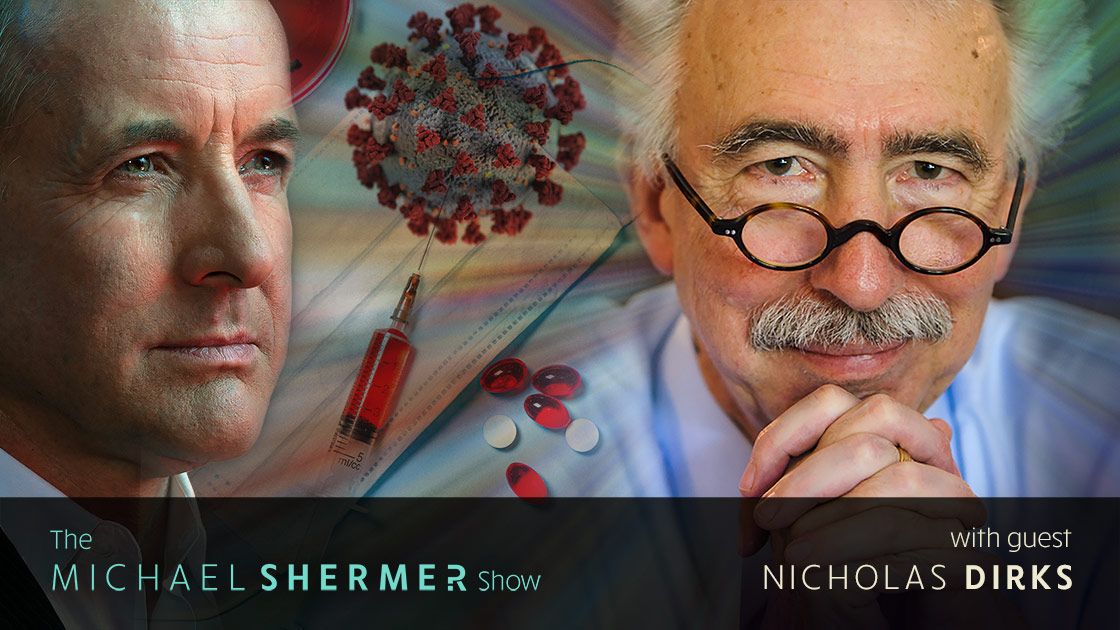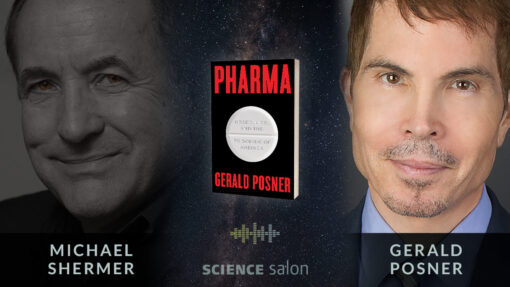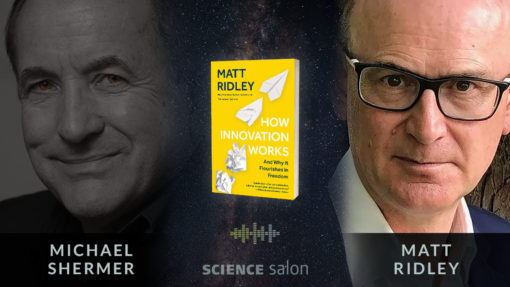antibiotics

The human colon may represent the most biodense ecosystem in the world. Though many may believe that our stool is primarily made up of undigested food, about 75 percent is pure bacteria—trillions and trillions, in fact, about half a trillion bacteria per teaspoon. Do we get anything from these trillions of tenants taking up residence […]

Shermer and Dirks discuss: vaccine hesitancy • why antibiotics do not generate the same distrust • vaccines and autism • COVID-19 and its differential effects on people • the lab-leak hypothesis vs. the zoonomic hypothesis for the origin of SARS CoV-2 • Anthony Fauci and the CDC • climate denial • how trust in science has changed over the past century • the politicization of science • how to talk to someone who doesn’t trust science or scientists.
Shermer, Sanford, and Novella try wheatgrass juice, with amusing results. PLUS: in a column from Skeptic magazine 26.2 (2021), Harriet Hall, M.D. recounts that Mark Twain was an enthusiastic proponent of “alternative medicine” long before the term was coined — and much of it remains the same as in his time.

In this column from Skeptic magazine 26.2 (2021), Harriet Hall, M.D. recounts that Mark Twain was an enthusiastic proponent of “alternative medicine” long before the term was coined — and much of it remains the same as in his time.

In Science Salon Podcast # 123, Michael Shermer and Gerald Posner discuss how Big Pharma conspires to hack FDA regulations, the Opioid crisis. addiction, greed, capitalism, drug patents, innovation, and the prospects for a COVID-19 vaccine.
Save 40% on new digital subscription via PocketMags.com, now thru July 25, 2020. PLUS, in Science Salon Podcast # 123, Michael Shermer and Gerald Posner discuss how Big Pharma conspires to hack FDA regulations, the Opioid crisis. addiction, greed, capitalism, drug patents, innovation, and the prospects for a COVID-19 vaccine.

Innovation is the main event of the modern age, the reason we experience both dramatic improvements in our living standards and unsettling changes in our society. Matt Ridley argues that we need to think about innovation as an incremental, bottom-up, fortuitous process that happens to society as a direct result of the human habit of exchange, rather than an orderly, top-down process developing according to a plan.
In Science Salon # 117, Michael Shermer speaks with Matt Ridley about his book How Innovation Works: and Why It Flourishes in Freedom.













